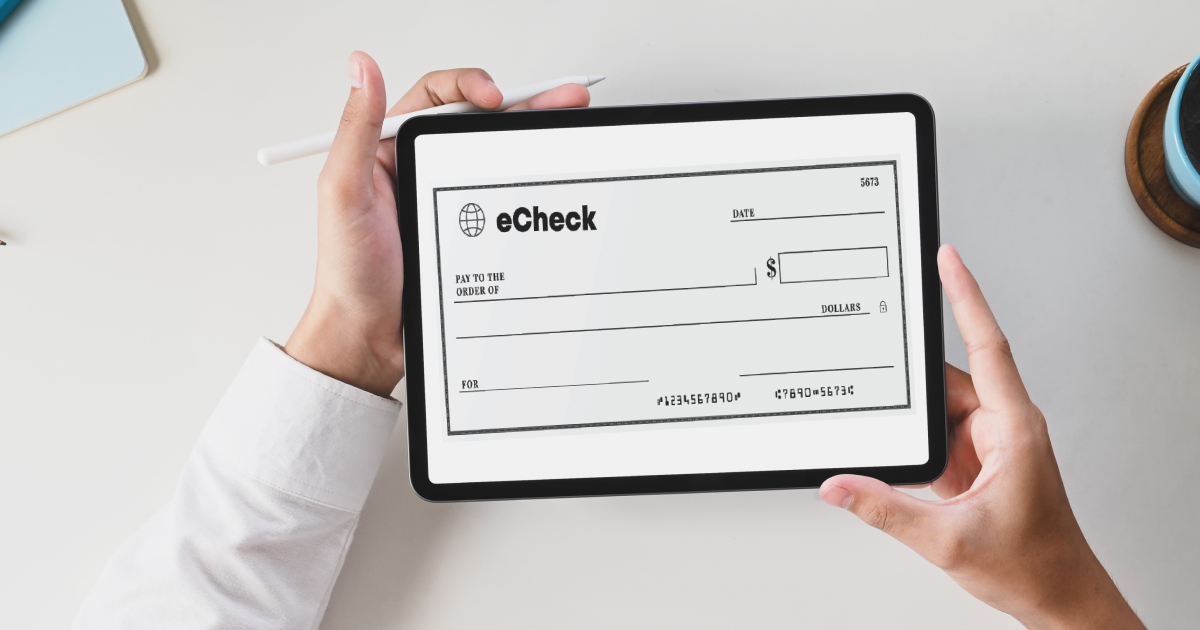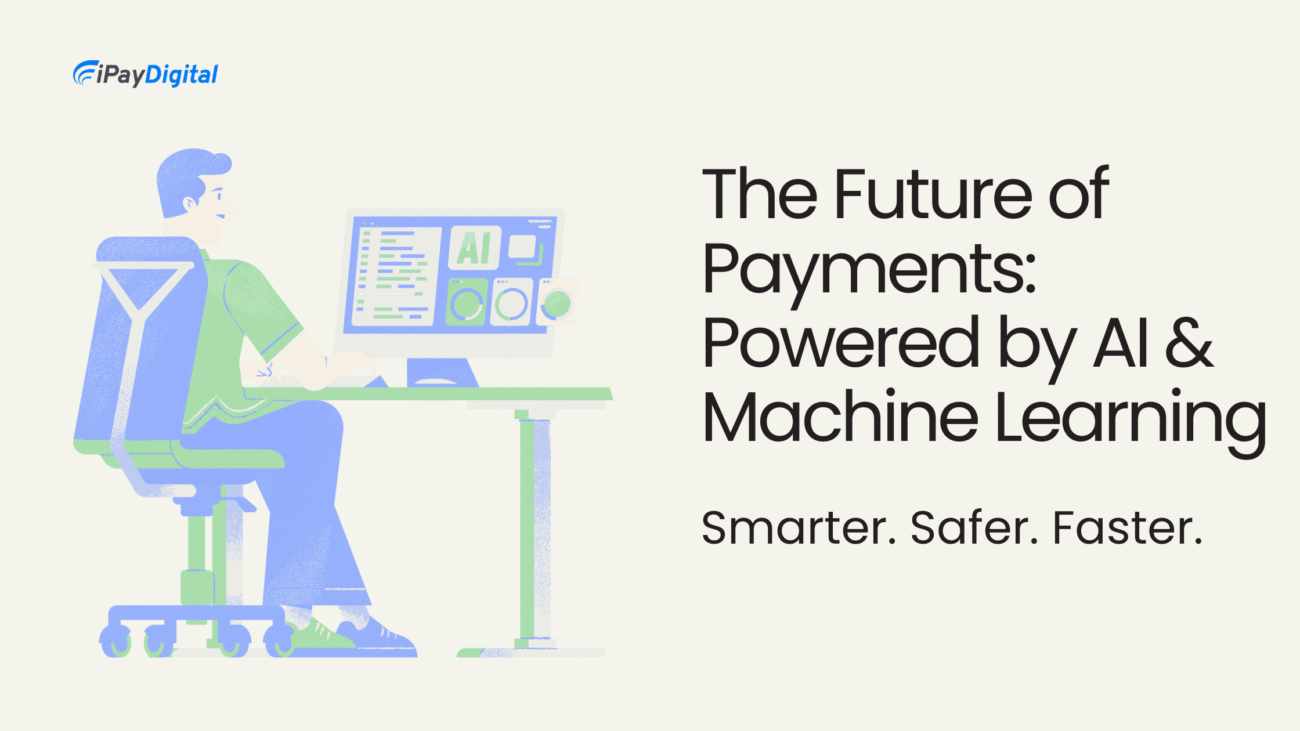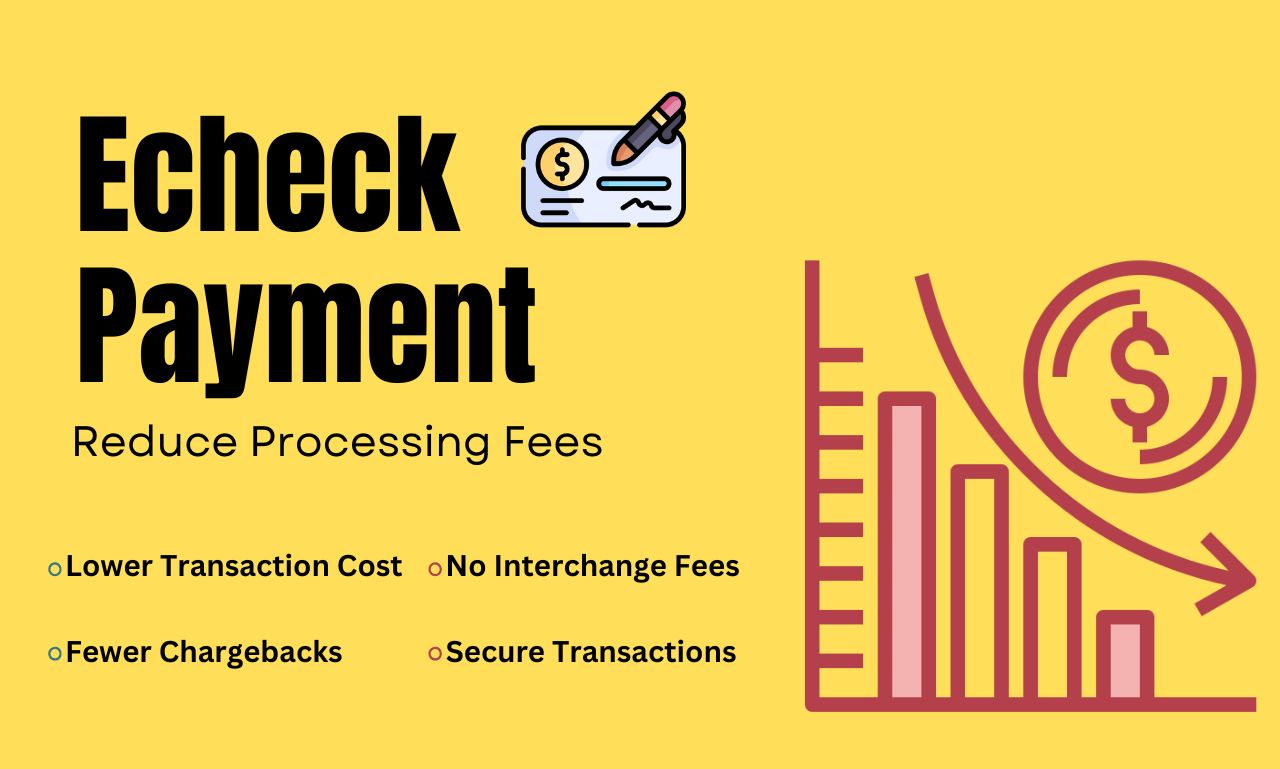In an era dominated by credit cards, mobile wallets, and digital payment apps, the rise of electronic checks (eChecks) might seem surprising. However, eCheck payment processing is quietly making a comeback, especially in industries that rely on recurring payments or high-ticket transactions. With its lower fees, security features, and ease of use, eCheck processing has evolved to meet the demands of modern businesses and consumers alike.
In this blog, we’ll explore the reasons behind the resurgence of eCheck payments, how they work, and why businesses are increasingly turning to this payment method.
What is an eCheck?
An eCheck, or electronic check, is a digital version of the traditional paper check. It allows funds to be transferred directly from a customer’s bank account to a business through the Automated Clearing House (ACH) network. eChecks are essentially electronic payments that function similarly to paper checks but offer a faster, more efficient, and secure process.
When a customer authorizes an eCheck transaction, the business initiates the transfer of funds from the customer’s account to its own. The payment goes through the ACH network, which processes the transaction and moves the funds electronically. This method is especially useful for recurring payments, such as subscriptions or loans, and for high-ticket transactions, such as real estate deals or auto financing.
Why eCheck Payments are Making a Comeback
Several key factors have contributed to the growing popularity of eCheck payment processing in today’s digital economy. Let’s take a look at the top reasons behind this resurgence:
1. Lower Transaction Fees
One of the biggest reasons businesses are turning to eCheck payments is the lower transaction fees compared to credit card processing. Traditional credit card payments come with high interchange fees, which can be a burden, particularly for businesses processing large transactions. On the other hand, eChecks are processed through the ACH network, which typically has much lower fees.
For businesses that handle high-volume or high-value transactions, such as healthcare providers, real estate agents, or B2B companies, the savings from using eChecks can be substantial. Lower fees mean more revenue stays in the business, allowing companies to reinvest in growth or pass on savings to customers.
In an era where profit margins are increasingly thin, businesses are always looking for ways to reduce costs, and eCheck payment processing offers a cost-effective solution.
2. Security and Fraud Prevention
Security is a top concern for both businesses and consumers, especially when it comes to financial transactions. eCheck payments offer enhanced security features that help protect against fraud. Since eChecks are processed through the ACH network, they must comply with strict guidelines set by the National Automated Clearing House Association (NACHA).
eCheck transactions require multiple layers of authentication, including account verification, which reduces the likelihood of fraudulent transactions. Additionally, businesses can use encryption, tokenization, and other security measures to safeguard sensitive data and ensure that customer information is protected throughout the payment process.
Moreover, unlike paper checks, which can be lost, stolen, or tampered with, eChecks eliminate the risk of physical theft. The digital nature of eChecks makes them a safer option for both customers and businesses.
3. Convenience and Ease of Use
The convenience of eCheck payments is another key factor driving their resurgence. With eChecks, customers don’t need to write and mail paper checks, and businesses don’t have to wait for checks to clear. The entire process is digital, which speeds up payment processing and improves cash flow for businesses.
For customers, paying by eCheck is as simple as entering their bank account information and authorizing the transaction. This can be done online or over the phone, making it easy for customers to complete transactions without having to leave their homes or offices.
From a business perspective, eChecks reduce the manual labor involved in handling paper checks, such as depositing checks at the bank or dealing with bounced checks. With eChecks, businesses can streamline their payment processes and focus on providing better customer service.
4. Recurring Payments and Subscriptions
eChecks are particularly well-suited for businesses that deal with recurring payments or subscription-based models. Whether it’s a monthly gym membership, a software subscription, or a utility bill, eChecks allow customers to set up automatic payments directly from their bank accounts.
This is especially beneficial for businesses, as it reduces the likelihood of missed payments or declined transactions due to expired credit cards. With eCheck payments, businesses can enjoy a more consistent cash flow and reduce administrative costs associated with chasing down late payments.
For customers, eCheck-based recurring payments provide a hassle-free way to pay for services without having to manually enter their credit card details every month. This level of convenience fosters customer loyalty and can improve retention rates for subscription-based businesses.
5. Acceptance of High-Value Transactions
While credit card payments are convenient for small, everyday purchases, they’re not always the best option for large transactions. Credit card companies often impose spending limits, and high processing fees can make credit cards an expensive option for big-ticket purchases. This is where eCheck payments come in.
eChecks are ideal for businesses that handle high-value transactions, such as car dealerships, real estate agencies, and B2B enterprises. With eChecks, businesses can process large transactions without worrying about the high fees associated with credit cards. Plus, there are no spending limits, so customers can use eChecks for purchases that might otherwise exceed their credit card limits.
By offering eChecks as a payment option, businesses can attract more customers who are looking for a cost-effective way to make large payments.
6. Faster Processing Times
In the past, one of the drawbacks of paper checks was the long processing time. Businesses often had to wait several days for checks to clear, which could delay cash flow and create financial uncertainty. However, with eChecks, payment processing is much faster.
eCheck payments are typically processed within 1-3 business days, allowing businesses to receive funds more quickly. This is a significant improvement over paper checks, which can take up to a week to clear, depending on the bank and other factors. Faster processing times mean businesses can access their funds sooner, which improves cash flow and financial planning.
Additionally, eChecks help reduce the risk of bounced checks. Since the payment is processed electronically, businesses can verify that funds are available in the customer’s account before the transaction is completed. This reduces the likelihood of failed payments and the associated administrative headaches.
7. Environmentally Friendly
As businesses and consumers become more environmentally conscious, eChecks offer a greener alternative to traditional paper checks. By eliminating the need for paper, ink, and postage, eChecks contribute to a reduction in waste and carbon emissions. Businesses that prioritize sustainability can use eChecks as part of their eco-friendly initiatives and promote their use to environmentally conscious customers.
Conclusion
eCheck payment processing is making a strong comeback for a variety of reasons, including its lower transaction fees, enhanced security, convenience, and suitability for high-value and recurring payments. As businesses look for ways to reduce costs and streamline operations, eChecks provide a valuable alternative to credit card payments. By offering eCheck payment options, businesses can attract more customers, improve cash flow, and enhance the overall payment experience. As the digital economy continues to evolve, eChecks are likely to play an increasingly important role in payment processing, providing businesses with a cost-effective and secure way to handle transactions. If your business hasn’t yet explored eCheck payment processing, now is the time to consider adding it to your payment options.














